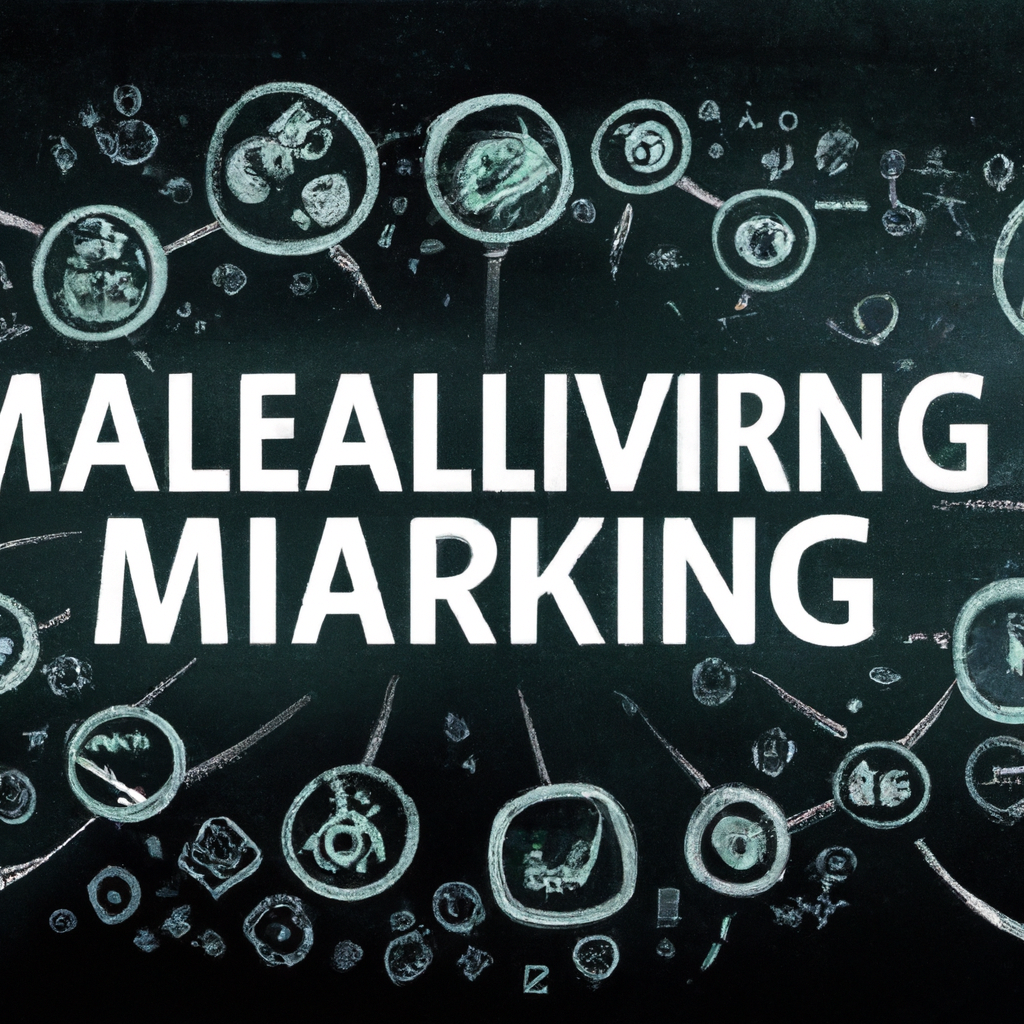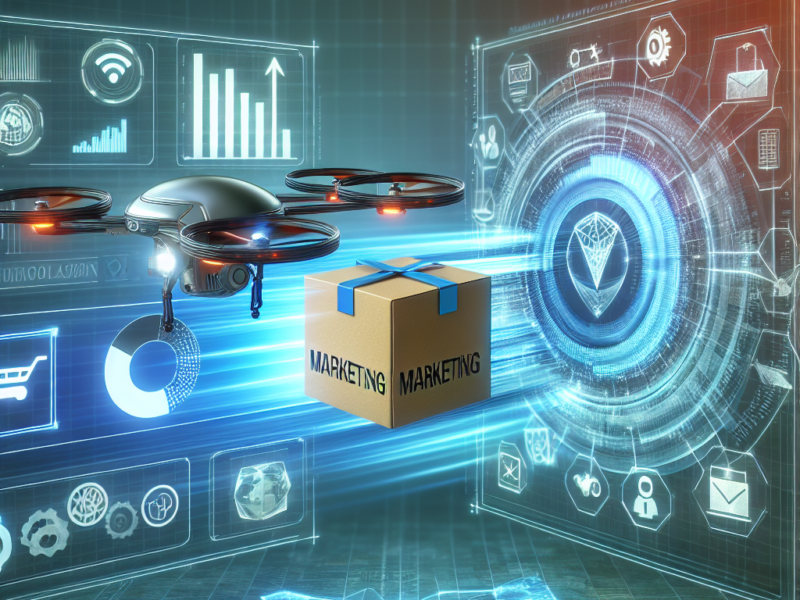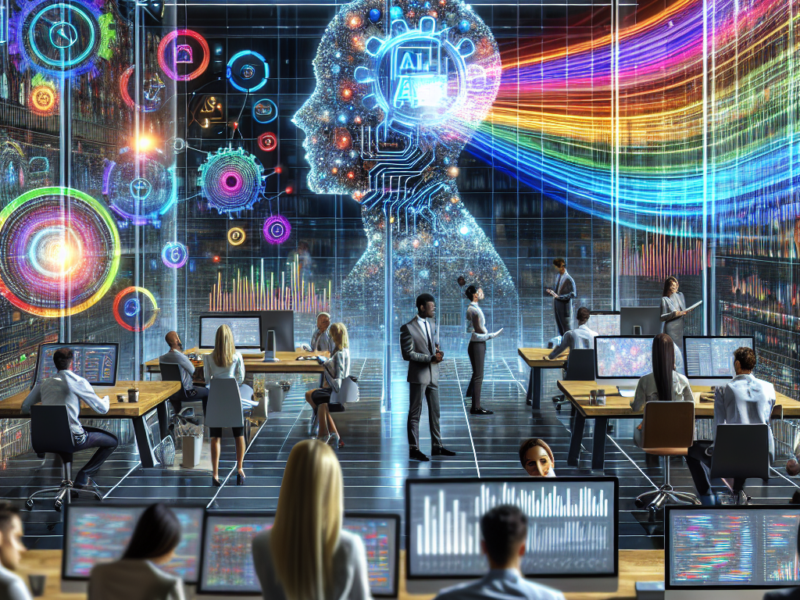Table of Contents
- AI and Machine Learning: Revolutionizing Marketing
- The Impact of AI and ML on Modern Marketing Strategies
- Enhancing Customer Experiences with AI and ML
- Case Studies: Successful AI and ML Applications in Marketing
- Amazon’s Use of AI for Personalization
- Starbucks and Predictive Analytics
- Statistical Insights into AI and ML in Marketing
- Challenges and Ethical Considerations
- Future Trends in AI and ML in Marketing
- Conclusion: The Transformative Power of AI and ML in Marketing
AI and Machine Learning: Revolutionizing Marketing

The integration of Artificial Intelligence (AI) and Machine Learning (ML) into marketing strategies is transforming the landscape of business and consumer interactions. This article explores how these technologies are revolutionizing marketing, enhancing customer experiences, and providing companies with unprecedented insights into consumer behavior.
The Impact of AI and ML on Modern Marketing Strategies
AI and machine learning are at the forefront of a revolution in marketing, offering tools that can analyze vast amounts of data more efficiently than ever before. This capability allows businesses to tailor their marketing efforts more precisely to individual consumer needs and preferences.
- Personalization: AI algorithms can sift through data to identify patterns in consumer behavior, enabling marketers to craft personalized messages and offers.
- Customer Segmentation: Machine learning models segment customers into distinct groups based on similar behaviors or preferences, which can be targeted specifically to increase the effectiveness of marketing campaigns.
- Optimization of Marketing Campaigns: AI tools can predict the success of a campaign before it is fully launched, allowing for real-time adjustments to maximize impact.
Enhancing Customer Experiences with AI and ML
AI and machine learning not only streamline marketing operations but also significantly enhance the customer experience. By leveraging these technologies, businesses can create more engaging and interactive customer journeys.
- Chatbots and Virtual Assistants: AI-powered chatbots provide instant customer service, handling inquiries and resolving issues around the clock without human intervention.
- Recommendation Systems: Machine learning algorithms analyze past behavior to suggest products or services that are more likely to be of interest to the customer, enhancing the shopping experience.
- Real-Time Interaction: AI systems can interact with customers in real-time, providing personalized guidance and support during the buying process.
Case Studies: Successful AI and ML Applications in Marketing
Several leading companies have successfully integrated AI and machine learning into their marketing strategies, demonstrating the potential of these technologies to transform industry practices.
Amazon’s Use of AI for Personalization
Amazon utilizes AI to offer personalized shopping experiences to millions of customers. Its recommendation engine analyzes individual customer data, including past purchases, search history, and browsing patterns, to suggest products that are likely to be of interest. This not only increases customer satisfaction but also boosts sales.
Starbucks and Predictive Analytics
Starbucks uses machine learning to analyze the preferences and purchase history of its customers to offer personalized marketing messages and recommendations. This approach has led to increased customer engagement and satisfaction, as evidenced by their growing loyalty program membership.
Statistical Insights into AI and ML in Marketing
Recent studies and surveys provide compelling evidence of the effectiveness of AI and machine learning in marketing:
- A report by Salesforce indicates that 51% of marketing leaders are using AI, with an additional 27% planning to incorporate the technology within two years.
- According to a survey by PwC, 72% of business executives believe that AI provides substantial business advantages.
- Research from the Boston Consulting Group found that companies integrating AI in their marketing strategies have seen sales lifts of up to 10%.
Challenges and Ethical Considerations
While AI and machine learning offer significant advantages, they also present challenges and ethical considerations that must be addressed:
- Data Privacy: The use of personal data raises concerns about privacy and security. Companies must ensure compliance with regulations like GDPR and CCPA.
- Algorithm Bias: AI systems can perpetuate existing biases if not properly trained on diverse data sets. This can lead to unfair treatment of certain customer groups.
- Transparency: Businesses need to maintain transparency in how they use AI and machine learning, particularly in decision-making processes that affect customers directly.
Future Trends in AI and ML in Marketing
The future of marketing with AI and machine learning looks promising, with several trends likely to dominate:
- Advancements in Natural Language Processing: Improvements in NLP will make virtual assistants and chatbots more sophisticated and human-like.
- Integration of Augmented Reality: Combining AR with AI will create more immersive and interactive marketing experiences.
- Greater Emphasis on Predictive Analytics: As data collection grows, predictive analytics will become even more precise, enabling marketers to anticipate consumer needs more effectively.
Conclusion: The Transformative Power of AI and ML in Marketing
AI and machine learning are revolutionizing marketing by enabling more personalized, efficient, and engaging interactions with customers. The successful integration of these technologies not only enhances customer experiences but also provides marketers with valuable insights, leading to better decision-making and increased profitability. As businesses continue to adopt AI and ML, they must navigate the associated challenges responsibly, ensuring ethical use of data and transparency in their operations. The future of marketing with AI and machine learning holds exciting possibilities, promising even greater advancements and innovations in the field.



I’m skeptical about the sales lifts attributed to AI. It seems like an exaggerated claim to promote these technologies.
This article is so interesting and eye-opening! I had no idea AI and ML could have such a huge impact on marketing.
The ethical considerations highlighted here are a major concern. Businesses should prioritize customer privacy and fairness over AI applications.
Predictive analytics can’t replace human intuition and creativity in marketing. AI can’t fully understand the emotional aspect of consumer behavior.
The future trends in AI and ML in marketing sound really exciting! I can’t wait to see how these technologies continue to evolve and improve customer experiences.
As someone with little background in technology, I found this article to be very informative and easy to understand. It’s exciting to see how AI and ML are transforming marketing!
I’m amazed at how AI and ML are enhancing customer experiences and making marketing more personalized. It’s great to see technology benefitting consumers!
I love how AI and ML are being used in real-world examples at companies like Amazon and Starbucks. It shows the practical applications of these technologies.
I don’t believe that AI and ML can really understand and predict human behavior accurately. It’s an overhyped technology.
Total nonsense! AI and machine learning are nothing but an invasion of privacy and perpetuate biases. Companies just want to make more money, they don’t care about the customer experience!
It’s amazing to see how AI and machine learning are being used in marketing to create personalized experiences for customers. I’m excited to see what new developments will come in the future.
Businesses shouldn’t rely so heavily on AI and machine learning. It takes away the human touch and could lead to customer alienation.